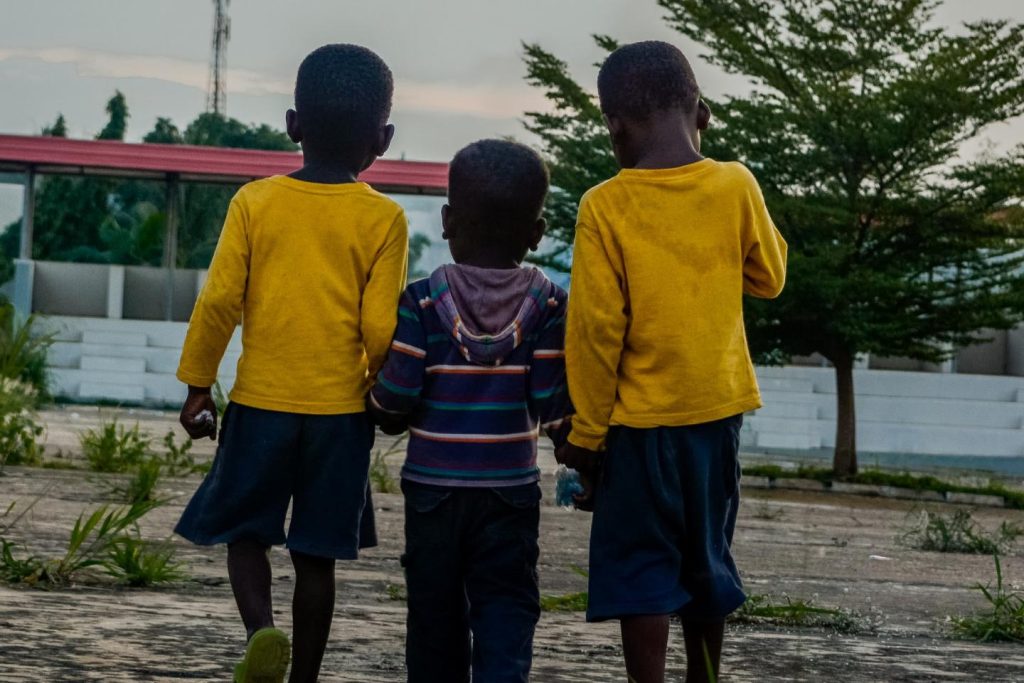
Hauwa Ali
Lagos is a city of contrast. Its skyline is dotted with towering high-rises and gleaming hotels, yet behind these façades, is a dark and persistent problem. In 2024 alone, 3,215 children in Lagos experienced various forms of abuse, accounting for more than one-third of the 9,279 documented cases of domestic violence reported.
Beneath these glaring numbers is an even more unsettling reality: the majority of the abusers, 2,708 in total, were the victims’ family members or acquaintances, not strangers. The Domestic and Sexual Violence Agency (DSVA) made this disclosure, which highlights the widespread nature of abuse as well as the ingrained cultural factors that enable it to persist.
In many Nigerian households, cultural norms stress respect for elders, loyalty to family, and silence in the face of familial conflict. While these values are often cited as virtues, they can also create dangerous environments for children. Abuse is normalized or hidden, excused under the guise of discipline or family honor.
“When my daughter confided in me that her uncle had been touching her, I was torn,” says Mrs. Adebayo, a mother from Surulere. “Some family members told me not to cause a scandal. But I couldn’t keep silent. I went to the police. But even then, the case dragged on and we never saw justice. Now, my daughter is afraid of authority figures.”
Ololade Ajayi, founder of DOHS Cares Foundation, adds: “Cultural norms create environments where abuse can thrive. When we teach children to be obedient at all costs, and when families prioritize reputation over justice, we’re setting the stage for violence to continue.”
Kings and Queens Club: Promising, But Can It Shift Deep-Rooted Attitudes?
The Lagos State Government’s Kings and Queens Club aims to tackle these issues by reaching children directly. In schools, children are taught about gender equality, sexual and reproductive rights, and what constitutes abuse. The program also includes the SAC initiative for primary schools, creating an age-appropriate framework for early education.
“We’re seeing increased awareness among students, which is encouraging,” says a teacher at a government secondary school in Ikeja. “They’re asking questions, sharing concerns. But when they return home, it’s a different story. Some parents dismiss what they’ve learned as nonsense. Some children even face punishment for trying to speak up.”
A teenage survivor from Agege, who prefers to be called Rachael, shares: “The Kings and Queens Club helped me understand what was happening to me. But telling my parents was hard. My stepfather was the one hurting me, and when I tried to tell my mother, she said I was imagining things. It wasn’t until a teacher noticed my silence and bruises that help finally came.”
The DSVA’s online parenting courses have enrolled over 13,000 parents, but with millions of families in Lagos, this number barely scratches the surface. “Many parents don’t engage with the platform because they lack digital literacy or see it as irrelevant to them,” says Titilola Vivour-Adeniyi, DSVA’s Executive Secretary.
The Law Enforcement Gap: Are the Police Equipped?
Law enforcement is a crucial but flawed link in the fight against child abuse. “The police are supposed to intervene, investigate, and prosecute, but in many cases, they don’t,” says Ajayi. “Victims and their families report cases, only to face indifference, mishandling, or even intimidation.”
A father from Ikorodu, Mr. Chukwuemeka, recounts his ordeal: “When my son was assaulted by a neighbor, we reported it to the police. They told us to settle it as a family matter. It was only when we contacted a lawyer that they reluctantly took a statement. Even then, the process was slow and frustrating.”
Many officers lack specialized training in handling sexual and gender-based violence (SGBV) cases, and limited resources hamper their ability to act effectively. A senior officer, speaking anonymously, admitted: “We’re under-resourced. We don’t have enough trained personnel for these sensitive cases, and sometimes we lack the tools or even the privacy needed for proper interviews.”
While 3,215 cases were reported, many more remain hidden. Fear, stigma, and lack of faith in the system discourage families from coming forward.
A community health worker in Agege shares: “In the last year alone, I’ve seen at least a dozen cases of child abuse that were never reported. Families handled it ‘internally’ or just ignored it. Some were afraid of the police; others didn’t want the shame.”
Grassroots organizations echo this reality. “The figures you see are just the surface,” Ajayi insists. “For every reported case, there are many more that go unreported. Without better systems and cultural change, these children will keep falling through the cracks.”
What Needs to Change?
To break this cycle, experts and advocates call for a comprehensive, multi-layered approach:
Expand Education Efforts: Scale the Kings and Queens Club to reach more schools and community centers.
Parental Engagement: Broaden digital and offline outreach for parenting courses, involving religious institutions and community leaders. Strengthen Law Enforcement: Invest in specialized units, training, and resources to handle child abuse cases.
Break the Silence: Launch mass awareness campaigns to challenge cultural norms protecting abusers and encourage survivors to come forward.
Transparent Data Collection: Collaborate with grassroots organizations to improve reporting and track cases more effectively. Lagos’s child abuse crisis isn’t just a statistic—it’s a heartbreaking, human reality. Behind every number is a face, a voice, a story.
“My son’s laughter used to fill our home,” says Mrs. Adebayo, her voice breaking. “Now, he’s afraid to speak to anyone. I just want him to heal and feel safe again.”
The fight against child abuse isn’t just the government’s job. It’s a collective responsibility, demanding courage, compassion, and commitment from every sector of society. By confronting cultural norms, empowering children and parents, holding perpetrators accountable, and rebuilding trust in protective systems, Lagos can begin to turn the tide
“It’s not just the government’s fight,” Ajayi says. “It’s a fight for all of us. For our children. For our future. And it starts by listening, believing, and taking action.”
